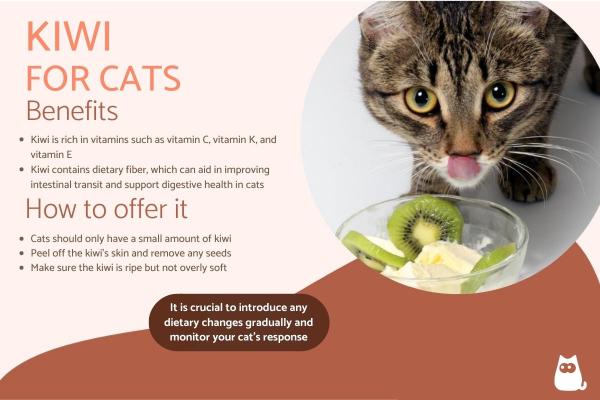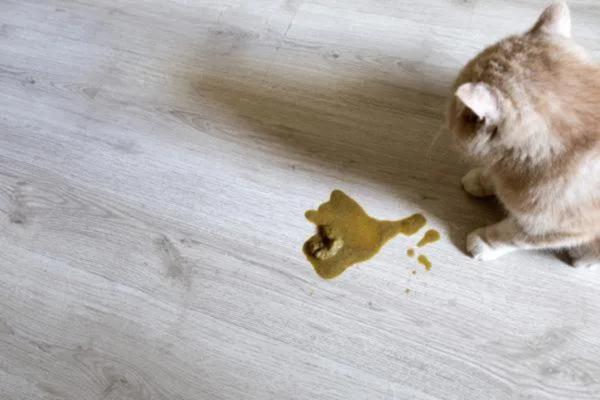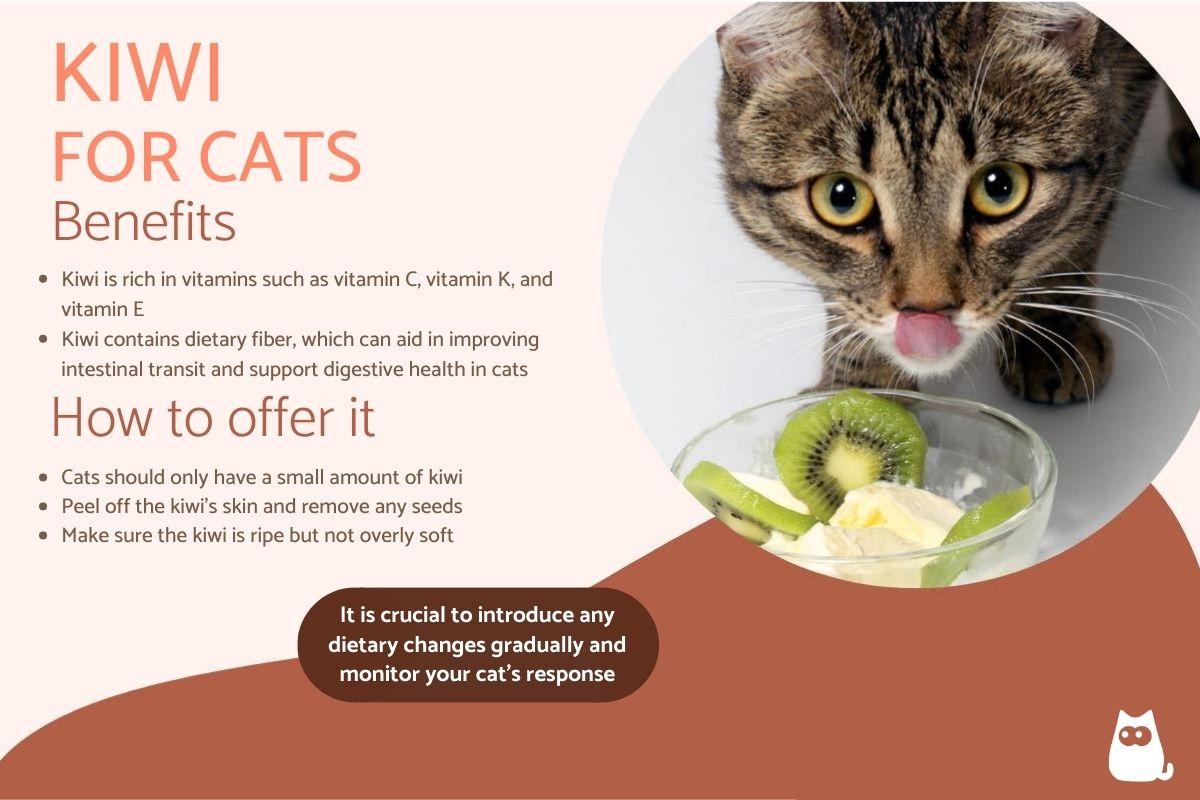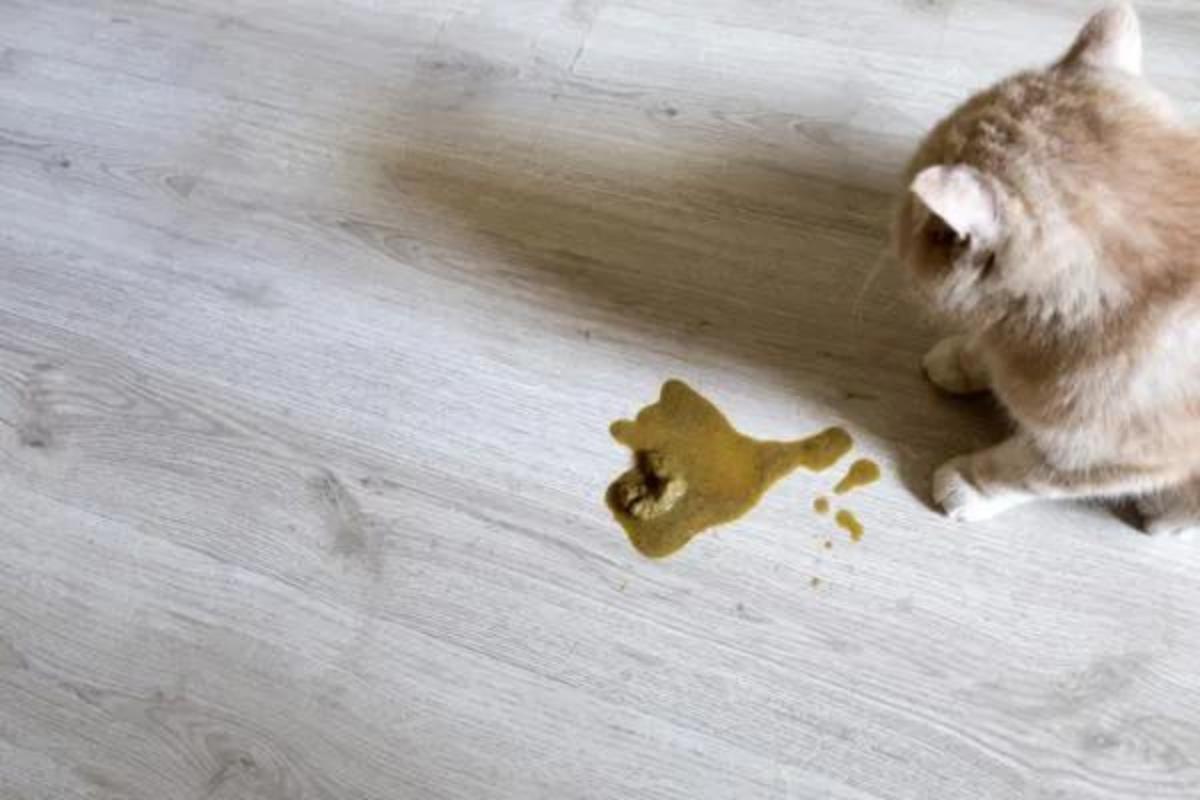Is Kiwi Good for Cats?



See files for Cats
Kiwis are packed with various nutrients, including vitamin C, folic acid, antioxidants, vitamins, and minerals. In fact, they are the top fruit source of vitamin C, surpassing even oranges, which are renowned for their vitamin C content. While these aspects might make kiwi seem like a valuable addition to our pets' diets, it's crucial to be aware that kiwis are also high in sugars or carbohydrates, which are not essential for cats in large quantities. Considering these factors, we might wonder if kiwi is indeed suitable for cats.
The following AnimalWised article explores whether kiwi is beneficial for cats, its potential advantages, as well as any contraindications and side effects.
Is kiwi good for cats?
Kiwi is not considered toxic to cats, so in that sense, it is not harmful for them to consume small amounts of kiwi on occasion. However, it's important to note that kiwi is not a necessary or essential part of a cat's diet.
Kiwi's appealing taste may attract some cats, but it is important to offer it in moderation. The fruit's vitamin content, immune system-boosting properties, and ability to improve intestinal transit can be obtained through a balanced diet specifically formulated for cats.
It's essential to be mindful of the significant carbohydrate content in kiwi, as it may not align well with a cat's dietary needs, which rely mainly on protein and fat for energy. Regular consumption of fruits, including kiwi, is not recommended, especially for cats that are overweight or have issues with sugars, such as feline diabetes.
Benefits of kiwi for cats
While kiwi is not a necessary part of a cat's diet, in small and controlled amounts, it may offer some benefits due to its nutritional content.
Kiwi is rich in vitamins such as vitamin C, vitamin K, and vitamin E. These vitamins can contribute to your cat's overall health and well-being. The vitamin C content in kiwi can help support your cat's immune system, helping them fight off infections and stay healthy.
Kiwi contains dietary fiber, which can aid in improving intestinal transit and support digestive health in cats. Furthermore, kiwi has a high water content, which can contribute to your cat's hydration, especially if they are not consuming enough water from their regular diet.
Finally, kiwi contains antioxidants, such as flavonoids and carotenoids, which can help neutralize harmful free radicals in your cat's body.
While these potential benefits are present, it's crucial to remember that cats are obligate carnivores, and their primary nutritional needs are met through a diet rich in animal-based protein.
Be sure to read this other article, where we provide you with a list of fruits and vegetables recommended for cats.
How to give kiwi to my cat?
If you want to give kiwi to your cat as an occasional treat, it's essential to do so in a safe and controlled manner. Here are some guidelines on how to offer kiwi to your cat:
- Cats should only have a small amount of kiwi. A small slice or a few small pieces should be sufficient as a treat.
- Make sure the kiwi is ripe but not overly soft. Avoid giving your cat unripe or overripe kiwi, as it may upset their stomach.
- Peel off the kiwi's skin and remove any seeds before offering it to your cat. The skin and seeds can be challenging for cats to digest and may pose a choking hazard.
- Do not give your cat kiwi that has been sweetened or flavored with any artificial additives, as these can be harmful to cats.
When introducing any new food to your cat, keep a close eye on them for any signs of adverse reactions or allergies. If you notice any negative reactions, such as vomiting or diarrhea, discontinue giving kiwi immediately and consult with your veterinarian.
Before introducing kiwi or any new food into your cat's diet, it's crucial to consult with your veterinarian. They can offer personalized advice tailored to your cat's specific health and dietary requirements.
Don't miss this other article where we have compiled a list of fruits and vegetables that cats can't eat.
Contraindications of kiwi for cats
The main contraindication of giving kiwi to a cat is its high sugar content. Here are the reasons why kiwi is not recommended for certain cats:
- Overweight or diabetic cats: kiwi's high sugar content can lead to weight gain in overweight cats and may cause a spike in blood sugar levels in diabetic cats, leading to complications. It's best to avoid feeding kiwi to cats with these conditions.
- Sensitivity to actinidin: some cats may be sensitive to actinidin, an enzyme present in kiwi, pineapple, and papaya. Consumption of kiwi may lead to swallowing problems, vomiting, or hives in these sensitive cats.
- Cats with kidney failure: kiwi should be avoided in cats with kidney failure due to its potassium content. Cats with kidney issues are more sensitive to potassium, and excessive intake can be harmful.
In summary, while kiwi is not toxic, it should be given to cats with caution, and certain cats should avoid it altogether due to the reasons mentioned above.
Make sure to check out this other article where we discuss how to determine if your cat is overweight, the health risks associated with an overweight cat, and effective methods to help your cat lose weight.

Side effects of kiwi for cats
While kiwi is not toxic to cats, it can have side effects when consumed inappropriately or in large quantities. Some potential side effects of kiwi for cats include:
- Gastroenteritis with diarrhea and abdominal pain: the dietary fiber and natural sugars in kiwi can have stimulating effects on the cat's intestinal transit, leading to gastrointestinal upset, diarrhea, and abdominal pain.
- Allergies or choking: cats can be allergic to certain components of kiwi, leading to symptoms such as abdominal pain, nausea, vomiting, hives, dilated pupils, sneezing, coughing, and irritability. Additionally, as mentioned earlier, the skin and seeds of kiwi can pose a choking hazard for cats.
- Obese or diabetic cats: kiwi contains significant amounts of natural sugars, which may not be well-suited to a cat's dietary needs. Regular consumption of kiwi may lead to weight gain or other health issues, particularly in overweight or diabetic cats.
Given these potential side effects, it's crucial to exercise caution and moderation when offering kiwi to your cat. Always supervise your cat closely when giving them any new food, including kiwi, to monitor for any adverse reactions. If you notice any of the mentioned clinical signs or any other unusual behavior in your cat after they consume kiwi, seek veterinary attention promptly.
You might find this other article interesting, as it delves into the topic of diabetes in cats, covering its symptoms, diagnosis, and care.
If you want to read similar articles to Is Kiwi Good for Cats?, we recommend you visit our Healthy diets category.






